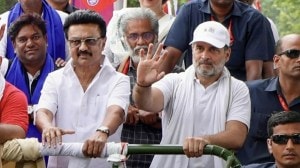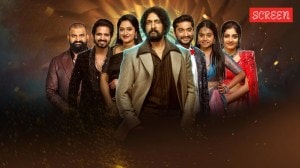Benchmarking comment
Bandhs had become a way of life in Kerala. There is no legislative definition of the expression 8216;bandh8217;.

Bandhs had become a way of life in Kerala. There is no legislative definition of the expression 8216;bandh8217;. A full bench of the Kerala high court dealt with this phenomenon in its elaborate judgment of February 1997. It understood the concept of a bandh as one where people are expected not to attend to their work or to travel for any purpose nor to carry on their trades, with a threat held out, either express or implied that any attempt to go against the call for the bandh would result in danger to their person and property. The court further held that although there may not be an overt threat of violence in a call for bandh yet there is clearly 8220;a menacing psychological fear8221; of serious consequences to the person who disobeys the call. The court vividly pointed out that when a bandh is called no locomotion is possible. No vehicle can be put on the road because public and private vehicles taken out are attacked and damaged, no student can go to school, no patient can go to his doctor, no one can reach the airport to travel abroad, no lawyer can attend court and thus judicial work is paralysed. The court did recognise that political parties and organisers have a right to call for non-cooperation or for a general strike as a form of protest. It however rejected the argument that a bandh with its potential consequences was the only form of protest available to a political party. In the court8217;s view, a call for a bandh effectively precludes citizens from exercising their fundamental rights and was therefore unconstitutional.
The CPM appealed to the Supreme Court. A three-judge bench by its short order dated November 12, 1997 dismissed the appeal and expressly approved the high court judgment. It further observed that the high court had drawn a very appropriate distinction between a 8216;bandh8217; on the one hand and a call for general strike or 8216;hartal8217; on the other.
Subsequently in the case of James Martin vs State of Kerala the Supreme Court ruled in December 2003 that no person has any right to destroy another8217;s property in the guise of bandh or hartal or strike, irrespective of the proclaimed reasonableness of the cause. No one can quarrel with this proposition except that the court sub silentio obliterated the clear distinction made by the three-judge bench between a strike and hartal on the one hand and a bandh on the other. The Supreme Court further observed that 8220;the question whether bandh or hartal or strike has any legal sanctity is of little consequence, especially where even law-enforcing authorities/those in power also precipitate to gain political advantage at the risk and cost of their opponents8221;. The court thundered about the necessity of controlling bandhs with an iron hand to protect 8220;victims of the high-handed acts of some fanatics with queer notions of democracy and freedom of speech or association8221;.
It is arguable that these Supreme Court judgments require reconsideration. In any event the wide observations in the judgment in James Martin need to be toned down. They reflect a judicial mindset which accords priority to law and order over the 8220;queer notions8221; of fundamental rights of expression, association and assembly. The crux of the matter however is that until these Supreme Court judgments are reconsidered or modified they hold the field and bind everyone. The bench of Justice B.N. Agrawal and Justice P.P. Naolekar which passed the order last Sunday banning the bandh called by the DMK ministry was bound by these previous judgments and its order cannot be constitutionally faulted.
It is significant that there were no mass protests over the high court or Supreme Court judgments. Besides no one, much less any chief minister, thought of going on a hunger strike. It is perplexing why the Gandhian method, or rather expedient, of hunger strike as a protest has been resorted to now by the Tamil Nadu CM when all that the bench did was to follow the previous binding judgments. But in the world of politics nothing is perplexing. Besides, as Goldsmith reminds us, 8220;Logicians have ill defined as rational the human mind.8221;
When the Supreme Court was informed on the next day, last Monday, that its orders were flouted and normal life in Chennai was disrupted, the court was understandably indignant. It is reported to have made observations about failure of constitutional machinery in the state of TN and is supposed to have recommended imposition of President8217;s Rule in the state. Clearly it is not the court8217;s function to recommend President8217;s Rule in a state. Its function is to adjudicate upon its constitutionality when it is imposed.
If it is established by cogent evidence that the state of Tamil Nadu had directly or indirectly encouraged total cessation of work resulting in disruption of normal life, the appropriate remedy would be initiation of contempt proceeding for defiance of the court8217;s order. The remedy does not lie in imposing President8217;s Rule, which results in dissolving duly elected legislative assemblies. If imposition of President8217;s Rule were permissible only because of defiance of court8217;s orders more than half the states in our country would be under President8217;s Rule and federalism, which is a basic feature of our Constitution, would become extinct.
But let us not lose our cool. Remember that a judge is not an automaton and at times judges tend to make off-the-cuff oral observations during the course of oral hearing in the surcharged atmosphere of the courtroom. In the present case judges expressed their anguish on account of the vehement submission of the petitioner8217;s counsel about the state flouting the court8217;s order and normal life coming to a halt in TN. It was in this context that the observations were made, which on sober subsequent reflection they would surely have refrained from making.
It is utterly wrong to construe these off-the-cuff oral observations as judicial encroachment and it is mischievous to raise the bogey of tussle between the court and the executive. Let us not forget that the court has not passed any judicial order or direction recommending President8217;s Rule nor has it expressed any judicial opinion about breakdown of constitutional machinery in Tamil Nadu. Let there not be much ado about nothing.
The writer is former attorney general for India
- 01
- 02
- 03
- 04
- 05






























